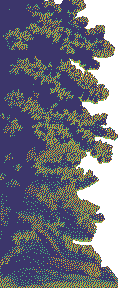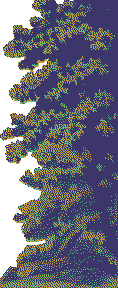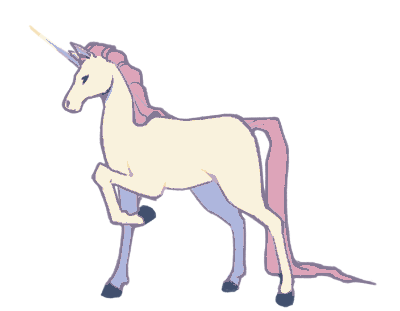The King of Elfland's Daughter
Note: This page is currently a work in progress, but I'm trying to be less precious about getting everything perfect. Updates soon to come!
The King of Elfland’s Daughter is a book by Lord Dunsany, published in 1924. (For context, the Hobbit was published in 1937) The story follows Alveric, son of the Lord of Erl, Lirazel, the princess of Elfland, and their eventual son, Orion. The entire story is beautiful, and mesmerizing. It was quite influential in the conception of the fantasy genre, and if you read it you’ll definitely start seeing those links!
It is available for Free from project Gutenberg, and it is in the public domain so you can do whatever you want with it. Personally I’m considering making my own illustrated version of the book and posting it chapter by chapter here, so check back later for updates. You should Absolutely read it, it’s so worth it.
Lord Dunsany also has a whole bunch of other work, including tons of short stories that reveal very clearly that he is English, and deeply salty about not having as big an empire anymore. Some of that shines through a little in The King of Elflands Daughter, but it’s not as noticeable as it is in something like The Sword of Wellaran.
Elfland’s beauty lies in its stasis. The whole land is nearly frozen in a single beautiful, twilit instant. The moment only moves once each and every ounce of contentment has been squeezed from it, by every creature residing in Elfland.
And the Elf King seated himself again on his throne of mist and ice, in which charmed rainbows were, and took Lirazel his daughter again on his knee, and the calm that his chaunting had broken came back heavy and deep over Elfland. Heavy and deep it fell on the lawns, heavy and deep on the flowers; each dazzling blade of grass was still in its little curve as though Nature in a moment of mourning said "Hush" at the sudden end of the world; and the flowers dreamed on in their beauty, immune from Autumn or wind.
Elfland is described as a still pond: only changing in response to a rock tossed into it, and falling through the water, disturbing its way down to the bottom. When I think of this, I imagine a post card, or those rare views of beautiful places where a faint haze lies between you and the hills, and you cannot help but think: it doesn’t look real, it’s just like a painting.
And the colour of Elfland, of which I despaired to tell, may yet be told, for we have hints of it here; the deep blue of the night in Summer just as the gloaming has gone, the pale blue of Venus flooding the evening with light, the deeps of lakes in the twilight, all these are hints of that colour. And while our sunflowers carefully turned to the sun, some forefather of the rhododendrons must have turned a little towards Elfland, so that some of that glory dwells with them to this day. And, above all, our painters have had many a glimpse of that country, so that sometimes in pictures we see a glamour too wonderful for our fields; it is a memory of theirs that intruded from some old glimpse of the pale-blue mountains while they sat at easels painting the fields we know.
The descriptions of Elfland bring real tears to my eyes. They feel to me like a distillation of all the reasons why I love fantasy. It fills me with the same desolate, but also bright and swelling feeling as the descriptions of Aslan creating Narnia.
"Who are you?" she said. And her voice had the music that, of earthly things, was most like ice in thousands of broken pieces rocked by a wind of Spring upon lakes in some northern country.

And grave monsters of fable in deeps of the ferny forest danced minuets that witches had made of their whims and their laughter, long ago long ago in their youth before cities had come to the world.

The way Dunsany describes the passage of time is also gut wrenching. Because the changing of seasons is as beautiful as it is terrifying.
The very nests of the pigeons were built on the ruins of old nests, on a solid layer of crumbled things that time had made in that pigeon-loft, as outside it the strata are made from the ruins of hills. So vast and ceaseless a ruin was not yet clear to the troll,
There is also a magic sword, and unicorns, and will o the wisps, and trolls…
Not like the runes that enraged the flames was the song she sang to the sword: she whose curses had blasted the fire till it shrivelled big logs of oak crooned now a melody like a wind in summer blowing from wild wood gardens that no man tended, down valleys loved once by children, now lost to them but for dreams, a song of such memories as lurk and hide along the edges of oblivion, now flashing from beautiful years a glimpse of some golden moment, now passing swiftly out of remembrance again, to go back to the shades of oblivion, and leaving on the mind those faintest traces of little shining feet which when dimly perceived by us are called regrets.
For of all creatures the unicorns are the wariest, guarding their beauty from the eye of man with never ceasing watchfulness; dwelling all day beyond the fields we know, and only entering them rarely at evening, when all is still, and with the utmost vigilance, and venturing even then scarcely beyond the edges.


Now it is far from my intention to write anything detrimental to will-o'-the-wisps, or anything that may be construed as being a slight upon them: no such construction should be put upon my writings. But it is well known that the people of the marshes lure travellers to their doom, and have delighted to follow that avocation for centuries, and I may be permitted to mention this in no spirit of disapproval.
And of there there also, however briefly, knights!
And then there appeared those knights who guard that palace lest any should come through the enchanted wood. Four of them they came shining over the lawns in armour, their faces not to be seen. In all the enchanted centuries of their lives they had not dared to dream of the princess: they had never bared their faces when they knelt armed before her. Yet they had sworn an oath of dreadful words that no man else should ever speak with her, if one should come through the enchanted wood. With this oath now on their lips they marched towards Alveric.
The witch really has some of the most killer lines in the whole book as well.
"No spell indeed!" she hissed. "No spell indeed! By broom and stars and night-riding! Would you rob Earth of her heirloom that has come from the olden time?
Would you take her treasure and leave her bare to the scorn of her comrade planets? Poor indeed were we without magic, whereof we are well stored to the envy of darkness and Space."
She leaned forward from where she sat and stamped her stick, looking up in Narl's face with her fierce unwavering eyes.
"I would sooner," she said, "give you a spell against water, that all the world should thirst, than give you a spell against the song of streams that evening hears faintly over the ridge of a hill, too dim for wakeful ears, a song threading through dreams, whereby we learn of old wars and lost loves of the Spirits of rivers.
I would sooner give you a spell against bread, that all the world should starve, than give you a spell against the magic of wheat that haunts the golden hollows in moonlight in July, through which in the warm short nights wander how many of whom man knows nothing.
I would make you spells against comfort and clothing, food, shelter and warmth, aye and will do it, sooner than tear from these poor fields of Earth that magic that is to them an ample cloak against the chill of Space, and a gay raiment against the sneers of nothingness.
In conclusion, I Really think you should read The King of Elfland's Daughter by Lord Dunsany. Again you can find it for free here.
- Hill PNG Images
- Tree graphics courtesy of doll archive
- Unicorn is by ME! (Repost to your site with credit!)
- Will-o-the-wisp pixel is also by me
